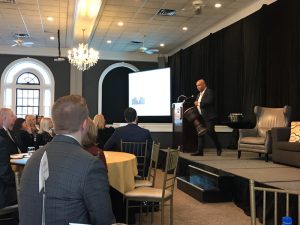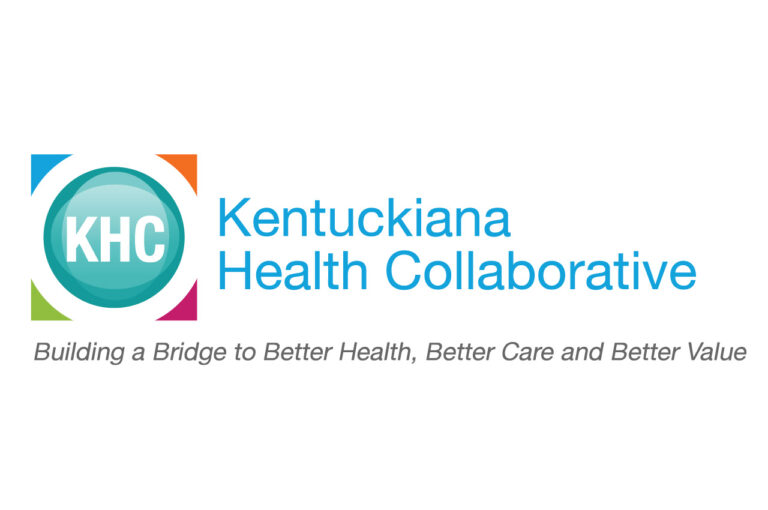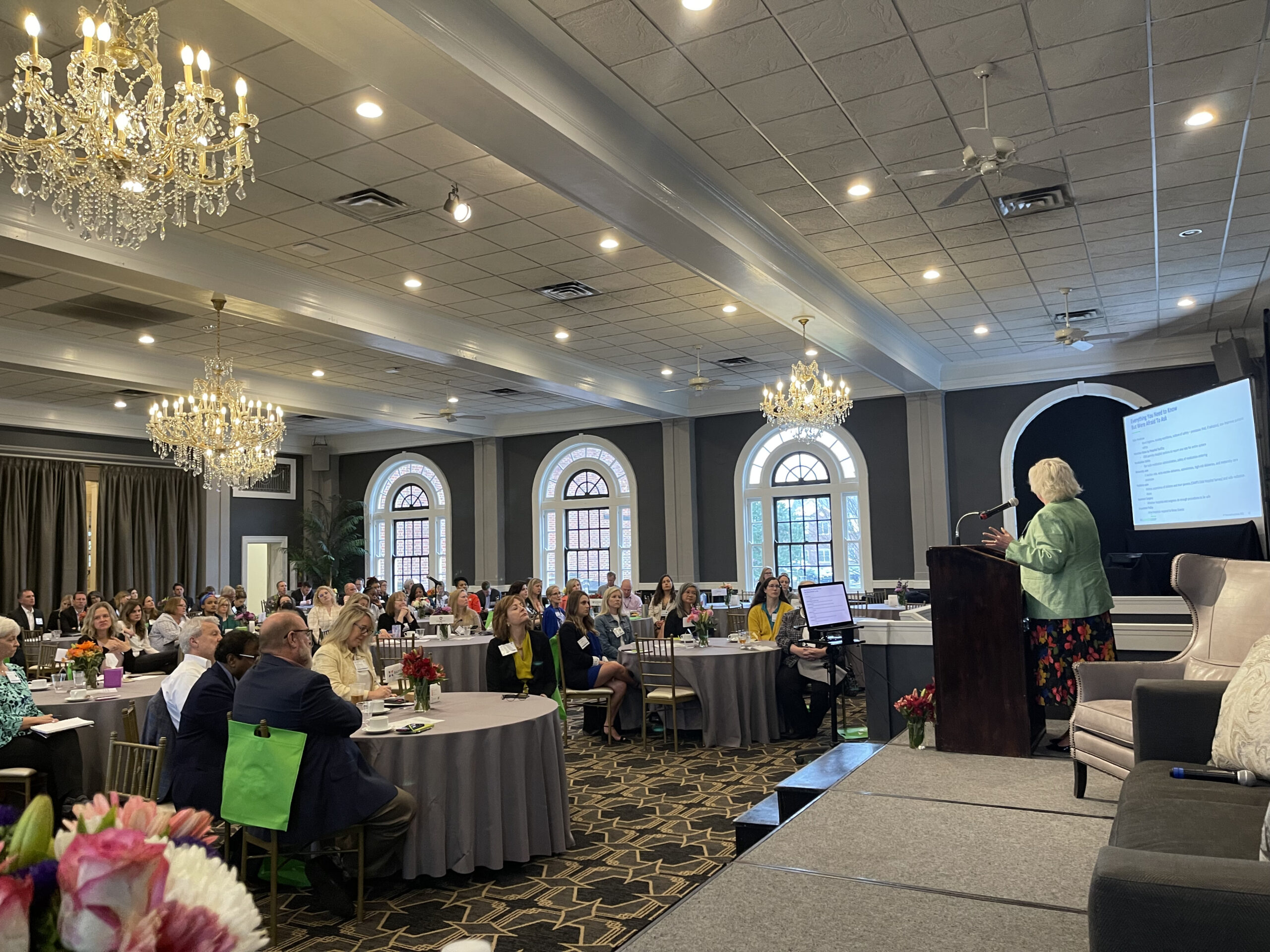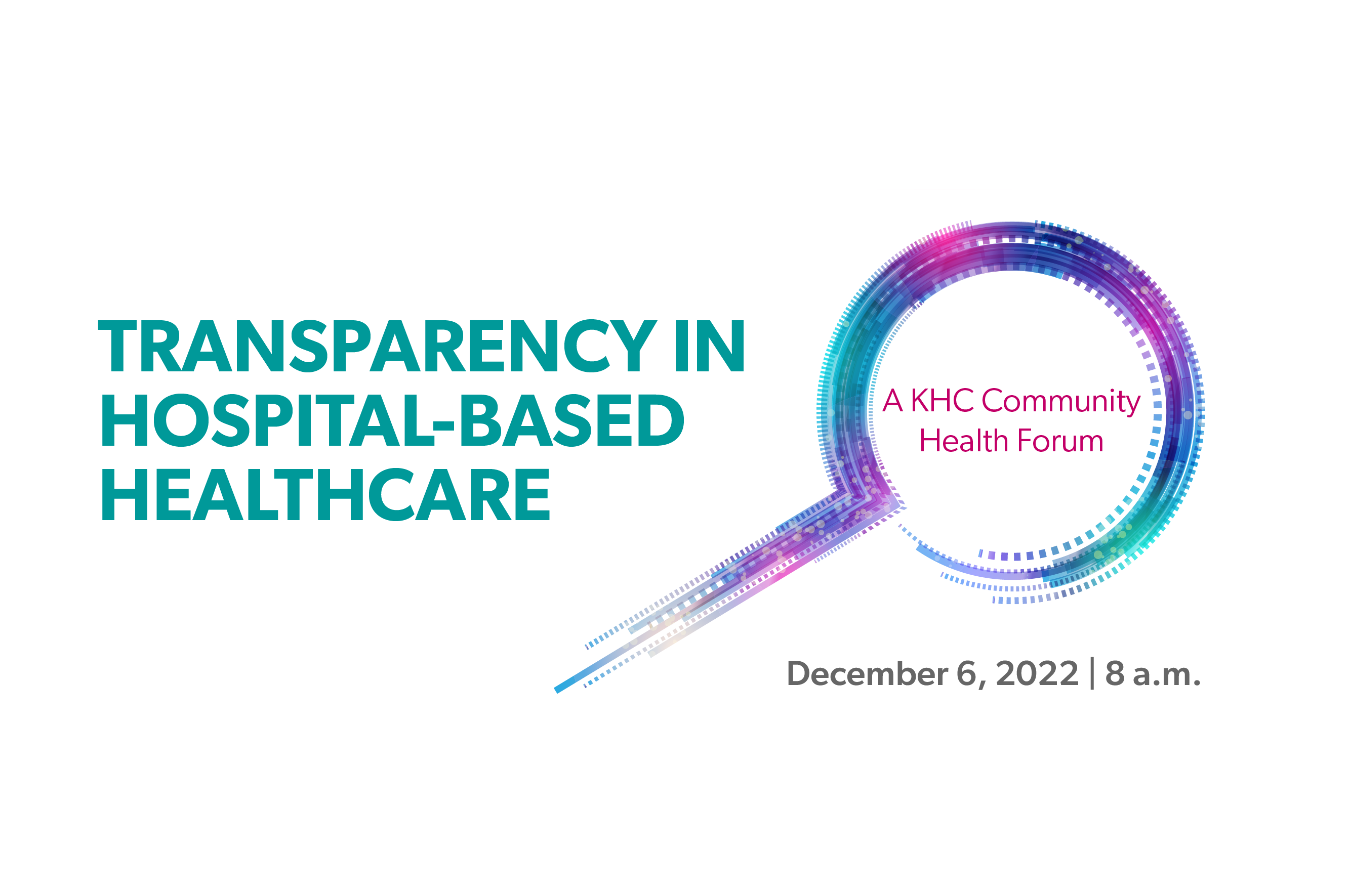
Despite the second nor’easter in two years to interfere with our annual conference speakers’ flights, the Kentuckiana Health Collaborative was able to pull off 16 live speakers for this year’s conference, and they did not disappoint.
Day started with big picture ideas, moved into more narrowed focus presentations
Keynote speaker and advocate Mike Veny kicked off the conference by illustrating the challenges and triumphs he had experienced as a child and adult living with depression, anxiety, and obsessive-compulsive disorder. He explained how stigma starts with shame and how we can transform shame by breaking the silence about mental health issues and self-care. Brenda Reiss-Brennan, PhD, APRN, discussed how Utah-based Intermountain Healthcare created a Mental Health Integration program for patients that made mental health evaluation and service part of the routine care. Their 10-year study including more than 100,000 patients demonstrated improved outcomes, enhanced patient experience, and improved value. Similar to mental health integration, Kristin Kroeger from the American Psychiatric Association and Dr. Anna Ratzliff from University of Washington’s Department of Psychiatry discussed how the Collaborative Care Model can also expand access to mental health and substance use disorder (SUD) services and treatment in primary care.
Samantha Arsenault kicked off the more-focused talks and panels on addiction and SUD by outlining Shatterproof’s core components of good care in the National Principles of Care. A panel followed with Dr. Kelly Clark, American Society of Addiction Medicine, Scott Hesseltine, Centerstone Kentucky, and Matt La Rocco, Louisville Metro Department of Public Health and Wellness, to discuss the latest scientific advancements around opioid addiction treatment. While the panelists agreed on many points, there was lively debate, as Dr. Stephen Houghland of Passport Health Plan moderated the discussion. Gaye Fortner of the HealthCare 21 Business Coalition in Knoxville, Tenn., shared several strategies employers must take to deal with the many workforce and benefit challenges of addiction.
Barbra Cave, APRN, University of Louisville Physicians’ Gastroenterology Hepatology, kept a room full of 200 people during lunch engaged in a presentation about Hepatitis C through her sheer energy, passion, and clear commitment to helping every single person with Hepatitis C reach a cure.
Anyone following the news today has seen the rise of student activism, and Louisville has its own star student activist, Allison Tu, a Junior at Manual High School and Founder of the Student Alliance for Mental Health Innovation and Action (StAMINA). Allison presented why students need to be solution partners to help address Kentucky’s youth mental health issues, what her student-led group has planned, and unveiled the launch of their new website, www.staminaky.com.
Conference wrapped up with KHC mental health activities
Stephanie Clouser of the KHC began the closing stretch of the conference by highlighting the KHC’s work around mental health and SUD:
- Served on National Quality Forum’s team to develop the National Quality Partners Playbook™: Opioid Stewardship
- Developing a provider tool for Screening, Brief Intervention, and Referral to Treatment (SBIRT) through the Kentucky Opioid Response Effort (KORE) grant
- Planned development of an employer toolkit around mental health and SUD through a KORE grant
- Convening of a new mental health workgroup
- Serving on Louisville Metro Department of Public Health’s Opioid Action Team, which developed a two-year action plan for addressing substance abuse in Louisville
Dr. Katie Marks from KORE reiterated KORE and KHC’s partnership and also highlighted KORE’s overall efforts to expand access to high quality, evidence-based opioid prevention, treatment, recovery, and harm reduction services and supports. Dr. Diana Han, KHC Co-Chair, closed the conference by discussing GE Appliances, a Haier Company’s commitment to helping address the mental health and substance use issues of our community through both sweat and financial equity. She gave a passionate plea for the need for an all hands on deck approach to dealing with the mental health and SUD crisis of our community and invited interested participants to join the KHC and others’ efforts.
Event met KHC quality and financial goals
The KHC team was proud of this year’s conference and was thrilled to meet both event satisfaction and financial goals. The KHC staff, Executive Committee, and members put in a lot of hard work each year to make the conference possible. Our sponsors deserve a lot of credit, and we want to thank our gold sponsor, Artemis Health, who co-presented their data analytics work with GE Appliances to demonstrate how they had identified and prioritized improvements needed for SUD care using health plan data. Another big thank you goes to our partners at Norton Healthcare and Kentucky Primary Care Association for being our silver sponsors and leading the best stretch breaks ever held at the KHC’s annual conference. We also want to thank Alkermes for their bronze sponsorship this year. Our friends from Anthem, Family Health Centers, Kentucky One Health, and Novo Nordisk also deserve a big thank you for being table sponsors and bringing several team members from their organizations to attend the conference. We want to also thank all of the exhibitors and attendees who participated in this year’s conference.
We know that to improve the mental health of our community, key healthcare stakeholders will need to collaborate to make systemic cultural and organizational changes. We hope the conference served as a catalyst to spark innovative approaches, strategies, and partnerships to drive improvements our community so desperately needs. While a conference like this is important to bring together conversation in this area, it is imperative to not let it end there.





